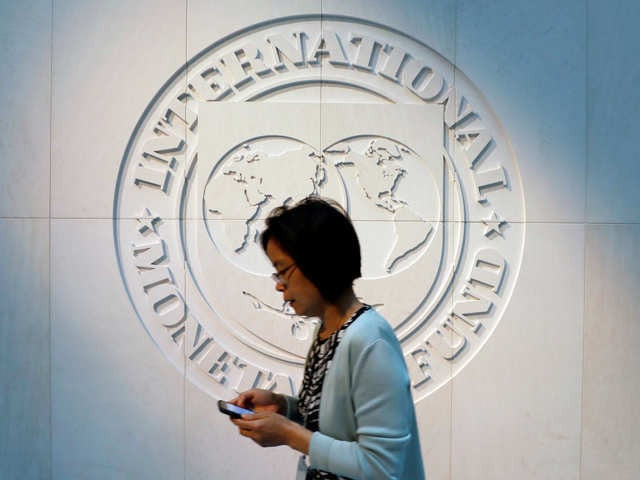IMF wants market-base rupee value
Fund blames controlled exchange rate for black market for dollars

The International Monetary Fund (IMF) has pressed Pakistan to let its currency gain the real value amid the country’s tighter currency controls, which have now created a black market for dollars and also discouraging foreign inflows through regular channels.
However, Islamabad has not accepted the IMF’s stance on the grounds that the State Bank of Pakistan (SBP) was not throwing sacred dollars in the interbank market.
Sources told The Express Tribune that IMF Mission Chief to Pakistan Nathan Porter on Thursday, in a meeting with Finance Minister Ishaq Dar, urged the government to implement the market-based exchange rate.
They added that the IMF had strong apprehensions that the Pakistani authorities were artificially controlling the exchange rate through administrative pressures on banks and currency exchange dealers.
The sources said Dar did not accept the IMF’s viewpoint that the authorities had any control over the exchange rate.
The meeting between Dar and Porter remained inconclusive because of a disagreement over the exchange rate policy coupled with power sector issues.
Despite foreign exchange reserves slipping to a critically low level of $6 billion as of December 21, the rupee marginally shed its value by 21 paisa to Rs225.64 to a dollar on Friday.
This has strengthened the position that the central bank and finance ministry were trying to control the nosedive of the rupee by informally setting the value for the interbank and open market.
As a result, the importers are not receiving dollars for their consignments while the open market rate has just become a showcase one.
The difference between the interbank and the black market rate has become as wide as Rs25 to Rs30 per dollar, according to an industrialist, who recently bought greenbacks at a rate of over Rs250.
Since the beginning of this month, the dollar gained only Rs1.69 and that does not commensurate with the prevailing tough economic conditions.
The finance ministry did not comment on the record for this report.
There were no indications that the central bank was throwing dollars in the market.
However, one tool that the government and SBP have in hands to influence the dollar price is the timing of the decision to impose heavy fines on the banks on charges of currency manipulation.
SBP Governor Jameel Ahmad had pledged before the standing committees on finance of both the houses of parliament thattheb fines would be imposed by the end of November. However, so far, the central bank has not yet made any announcement in this connection.
Because of the huge differences between the open, black market and interbank rates, the foreign remittances have also nosedived.
In its last monetary policy statement, the central bank had warned that because of the growing difference between the open market and the interbank exchange rates, the foreign remittances might drop.
The foreign remittances slipped by 9% to $12 billion during July-November period of the current fiscal year -- a reduction of $1.2 billion in just five months, according to the SBP.
The sources said that in the last meeting of the board of directors of the SBP, some participants had raised questions about whether or not the central bank was throwing dollars in the market.
The implementation of the market-based exchange rate is essential for the IMF before it decides to dispatch a mission to Islamabad. However, a weaker rupee would cause imported inflation in the country that the coalition government was not ready to face because of the charged political environment and an already double-digit inflation.
The sources said that because of the huge gap between the viewpoints of the Pakistani and the IMF authorities, the chances of the global lender’s mission coming to Islamabad even in the first week of January had almost diminished.
The only possibility for an early IMF mission is that Pakistan changes its position on the exchange rate and the power sector policies.
The delay in the start of the 9th review talks has hampered the approval of the next loan tranche of $1.1 billion besides bringing a pause in any major inflows by other bilateral and multilateral creditors.
There are some in the government that still believe that the IMF will have to show leniency, as the world may not like to see Pakistan defaulting on its debt obligations.
The remaining $6 billion foreign exchange reserves are not enough to fully fund Pakistan’s $8.5 billion external debt obligations from January to March 2023.
However, there is a possibility that the UAE and China -- with $2 billion each -- will rollover their maturing debts during this period.
This will still require the government to repay $4.5 billion from its reserves.
The $4.5 million maturing repayments in the next three months include $1.9 billion long-term debt repayment to China and $1 billion commercial loans.
Pakistani authorities hope that China will refinance a $700 million commercial debt that was paid back last month.



















COMMENTS
Comments are moderated and generally will be posted if they are on-topic and not abusive.
For more information, please see our Comments FAQ